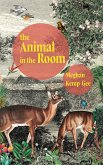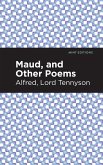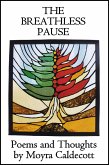CBC BOOKS CANADIAN POETRY COLLECTIONS TO WATCH FOR IN FALL 2023
In his follow-up to SKY WRI TEI NGS, Nasser Hussain tackles the absurdity of the English language
The title of Love Language can be read at least three ways: as an imperative, as the signoff to a letter, and as a contemporary way of talking about relationship styles. None of these would be wrong.
In his followup to the acclaimed SKY WRI TEI NGS, which used only the language of airport codes, Nasser Hussain moves toward a more expansive version of experimentation; in a time of physical lockdown, his pandemic poetics refuse to be confined. And so we have poems that repeat and hypnotize as English becomes more and more absurd, that compare an affair to a relationship with Apple, that list love poems the poet loves. Through it all we see a deep affection for our language, and for the ways that language lets us talk about love.
The Garden of Eden, it turns out, is always just a layover away. -Sam Anderson, New York Times Magazine on SKY WRI TEI NGS.
"Think of 'time as a lantern,' suggests Nasser Hussain, in these inimitable poems that take play seriously and allow seriousness to enter the room disguised as incantation. These are poems that long to dismiss the lyric's most recent pretty mask of polite propriety and instead take us to the lyric's ancient roots. It started way back, the poet says, 'when a cave person made a grunt,' to speak the name of a thing. Indeed. This is the lyric's ancient pact with the world: to spin playful language into seriousness of giving things their nameswhat are we without this speaking, this tune? Hussain knows this and writes beautiful poemsand I, for one, am grateful." Ilya Kaminsky, author of Deaf Republic
"Hussain's humour is never complacent; it is the opposite of a defence mechanism (we are encouraged to imagine such a thing) and wryly sidesteps the bad binary of conservative withdrawal as set against algorithm-envenomed hyperassertion. He puts into words a new masculinity maturer than we deserve, that acknowledges swerves of defiance to be inseparable from underswells of doubt." Vidyan Ravinthiran, author of The Million-Petalled Flower of Being Here
In his follow-up to SKY WRI TEI NGS, Nasser Hussain tackles the absurdity of the English language
The title of Love Language can be read at least three ways: as an imperative, as the signoff to a letter, and as a contemporary way of talking about relationship styles. None of these would be wrong.
In his followup to the acclaimed SKY WRI TEI NGS, which used only the language of airport codes, Nasser Hussain moves toward a more expansive version of experimentation; in a time of physical lockdown, his pandemic poetics refuse to be confined. And so we have poems that repeat and hypnotize as English becomes more and more absurd, that compare an affair to a relationship with Apple, that list love poems the poet loves. Through it all we see a deep affection for our language, and for the ways that language lets us talk about love.
The Garden of Eden, it turns out, is always just a layover away. -Sam Anderson, New York Times Magazine on SKY WRI TEI NGS.
"Think of 'time as a lantern,' suggests Nasser Hussain, in these inimitable poems that take play seriously and allow seriousness to enter the room disguised as incantation. These are poems that long to dismiss the lyric's most recent pretty mask of polite propriety and instead take us to the lyric's ancient roots. It started way back, the poet says, 'when a cave person made a grunt,' to speak the name of a thing. Indeed. This is the lyric's ancient pact with the world: to spin playful language into seriousness of giving things their nameswhat are we without this speaking, this tune? Hussain knows this and writes beautiful poemsand I, for one, am grateful." Ilya Kaminsky, author of Deaf Republic
"Hussain's humour is never complacent; it is the opposite of a defence mechanism (we are encouraged to imagine such a thing) and wryly sidesteps the bad binary of conservative withdrawal as set against algorithm-envenomed hyperassertion. He puts into words a new masculinity maturer than we deserve, that acknowledges swerves of defiance to be inseparable from underswells of doubt." Vidyan Ravinthiran, author of The Million-Petalled Flower of Being Here
Dieser Download kann aus rechtlichen Gründen nur mit Rechnungsadresse in A, D ausgeliefert werden.



![SKY WRI TEI NGS [Sky Writings] (eBook, ePUB) SKY WRI TEI NGS [Sky Writings] (eBook, ePUB)](https://bilder.buecher.de/produkte/56/56812/56812146m.jpg)





